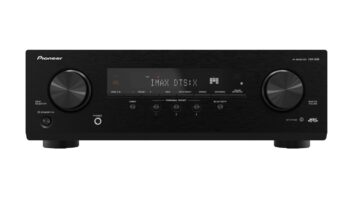
A little while back, our team ran a week-long research roadshow where we were fortunate enough to speak with presidents, vice presidents, sales managers, territory managers, inside sales and outside sales people from all walks of the appliance and consumer electronics industry. Our tour took us literally from coast-to-coast of the USA and we were really fortunate to be able to talk to some super sharp and knowledgeable folks.
The Challenge
In our very first interview on our very first day, one of them voiced a challenge that many of you who market to the channel will be familiar with:
“I think that the incentive business has really changed into the entitlement business. All brands are now giving and paying sales incentives. Therefore as a distributor of appliances, we’re trying to be competitive in the business, but at the same time we’re always trying to reduce our costs. We need help to be more competitive and help us reduce our costs, that would be valuable.”
Challenge accepted. We had an entire week to tour stores, speak with the people who are making the final sales to the consumers and ask them exactly how to help solve the problem of how to make sure your sales incentives aren’t getting lost in the crowd.
Here are six learnings, straight from the front lines:
Make it easy for them.
This touches on two roles that a claimant may have who enters sales spiff claims for your brand. One is the salesperson herself: when that person isn’t on the sales floor, they are not selling and that situation doesn’t really serve the interests of either one of you. Your program should be simple enough that sales associates don’t have to set aside huge amounts of time dedicated to entering claims. Whether they’re doing this type of task during their work hours or during their off hours, rest assured that they would definitely rather be doing something else.
The second role is that of someone inside your customer’s business who enters claims on behalf of the entire sales staff. For example, one person we met was designated as that dealer’s spiff manager. In this person’s role, they have the demands of their entire in-house team on their shoulders and they need to know that your brand is doing everything possible to make their job easier and save them as much time as possible. This makes them feel like you respect their time and appreciate the energy and attention that their business puts in to your partnering with your brand. Remember: there are only so many hours in a person’s workweek – if your claims are too much of a drain on their resources, this will limit their organization’s engagement with your brand.
Offer them visibility into the redemption process.
Nearly every salesperson we spoke with stressed that if there is an issue with their claim, they want that issue pointed out to them quickly and they want to have an opportunity to correct it right on the spot. What they don’t want is to have claims partially paid or put on hold with no explanation of why. They also don’t want their claims languishing on hold in your system – this ties up their money!
Think of your claims processing flow the same way you might think of a well-designed sales process, anticipating the claimant’s needs and managing her expectations at every step.
Have an answer for them.
A retail salesman in Memphis said it best: “if there’s an issue with my claim, I don’t want to have to call my district sales manager, and maybe that takes 2 days, then he’s got to call the right person and they’ve got to look into it and before you know it, the whole inquiry takes a week or a week and a half.”
That sentence is a mouthful and the point he was making dovetails perfectly with both of the above points. If your front-line sellers know that they have a strong contact point who can resolve any claim problems fast (preferably on the first call or email) then they are going to be continue to see your brand in a more favourable light.
Pay them fast.
100% of the salespeople my team spoke with on the tour, when asked what they like most about their favourite programs answered that they like when they get paid quickly. This just makes sense, doesn’t it? You perform an action with the anticipation that you will be receiving an incentive. Once you have completed your end of the deal (the sale) it stands to reason that you are looking to receive the other end (the payment) as soon as possible.
Delaying payment for incentives claims makes it very difficult for the recipient to associate your reward with the original action that they took to get the reward. There is a great deal of research that demonstrates the increased difficulty our brain has linking cause and effect as the time elapsed between the two increases.
Offer something special to your big shooters.
If your current sales incentives programs don’t offer a bonus for the super performers, you are missing an opportunity to bring out the best in people who are highly motivated simply by their own knowledge that they are at the top of their game. Your programs are obviously designed to incent everyone who sells your brand, but it is important to understand this truth that A players will always go the extra mile to be A plus players when challenged to do so.
So, budget for some secondary bonuses on top of your programs; whether it be top rep at a store, in a chain or in a territory. As they told us in Little Rock, “it doesn’t even have to be much; it’s just nice to know that you’re appreciated for doing your best and being the best.”
Pay them cash.
There is no shortage of debate on this issue within the incentives fulfillment industry but the folks at the front lines let us know loud and clear that companies can keep their points systems, travel rewards and branded goods. As our new friend Mike in Nashville said, “People come to work to earn a living, not an inflatable boat.”













